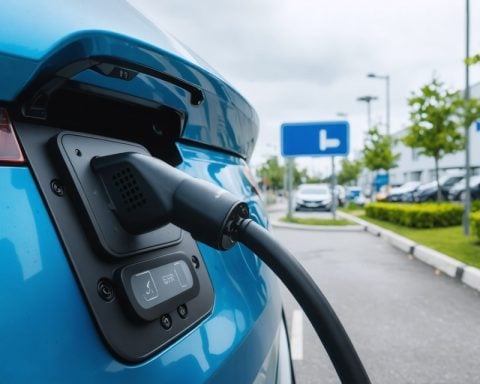The shift towards renewable energy sources has become a focal point for governments, businesses, and environmentalists worldwide. As nations grapple with the realities of climate change and the need for sustainable development, renewable energy has emerged not just as an environmental necessity, but also as a significant driver of global economic growth.
Growth in the Renewable Energy Sector
The renewable energy sector has witnessed remarkable growth over the past decade. According to the International Renewable Energy Agency (IRENA), the total capacity of renewable energy sources has increased from 1,000 GW in 2000 to over 2,800 GW in 2020. This extraordinary expansion is largely driven by advancements in technology and increasing affordability. For instance, the cost of solar photovoltaic (PV) power has plummeted by over 82% since 2010, making it one of the most competitive energy sources available today.
Job Creation and Economic Opportunities
One of the most significant impacts of renewable energy is job creation. The renewable energy sector is labor-intensive and has proven to be a vital source of employment. In 2021, it was estimated that over 12 million people were employed in the renewable energy sector worldwide, with solar and wind energy industries leading the way in job growth. This trend is expected to continue, as investments in renewable technologies create roles in manufacturing, installation, and maintenance.
Furthermore, transitioning to renewable energy can stimulate economic growth in various regions, particularly in areas that are traditionally dependent on fossil fuels. For instance, investments in wind and solar farms can boost local economies by providing new jobs and generating local tax revenue.
Energy Independence and Security
Renewable energy also plays a crucial role in enhancing energy independence and security for countries around the globe. By investing in homegrown energy sources, nations can reduce their reliance on imported fuels, which are subject to volatile prices and geopolitical tensions. Countries with abundant renewable resources, such as wind, solar, and hydro, can leverage these assets to bolster their energy independence, leading to greater economic stability.
Environmental Benefits and Long-term Sustainability
The environmental benefits of renewable energy contribute to its economic viability. By reducing greenhouse gas emissions and air pollutants, renewable energy technologies help mitigate the effects of climate change, which poses significant risks to global economies. Transitions to cleaner energy sources can prevent potential costs associated with climate-related disasters, healthcare for pollution-related illnesses, and damage to infrastructure.
Investing in renewable energy also aligns with the sustainable development goals (SDGs) set by the United Nations, particularly targeting affordable and clean energy. As countries aim to achieve these goals, there will be continued emphasis on building a low-carbon economy that prioritizes sustainability and resilience.
The Future of Renewable Energy Economy
The future of economic growth through renewable energy appears promising, with projections suggesting continued investments and advancements in technology. According to a report by BloombergNEF, investments in renewable energy are set to reach $5 trillion per year by 2030, mainly due to the growing demand for zero-emission electricity and transport.
In conclusion, the transition to renewable energy is not just an environmental imperative; it is a tremendous opportunity for economic growth, job creation, and energy security. As the world continues to confront the dual challenges of climate change and energy demand, the focus on renewable resources will play a critical role in shaping a sustainable and prosperous future.
Essential Tips and Life Hacks for Embracing Renewable Energy
As we stand on the brink of a global shift toward renewable energy, there are several ways individuals and businesses can not only support this transition but also benefit from it. Here are some practical tips, life hacks, and interesting facts that can help you navigate the renewable energy landscape effectively.
1. Go Green at Home
Start by making your own home more energy-efficient. Here are some tips:
– Install Solar Panels: Many homes can significantly reduce their energy bills by installing solar panels, which can provide a return on investment through savings.
– Energy-Efficient Appliances: Opt for ENERGY STAR-rated appliances that consume less electricity and water, which can further reduce your energy costs.
2. Increase Your Knowledge
Understanding renewable energy options can help you make informed decisions. Dive into content provided by reputable organizations to stay updated. Resources like the International Renewable Energy Agency offer valuable insights into renewable energy developments worldwide.
3. Take Advantage of Local Incentives
Many governments offer incentives or rebates for transitioning to renewable energy options. Research what tax credits or subsidies are available in your area for solar installation, energy-efficient home improvements, or electric vehicle purchases.
4. Get Involved in Your Community
Join local community groups that focus on promoting renewable energy. Participating in workshops or initiatives can raise awareness and spread the message about the benefits of sustainable energy practices.
5. Opt for Renewable Energy Solutions
If solar panels aren’t feasible, consider choosing a green energy provider that supplies electricity from renewable sources, such as wind or hydroelectric power. Many companies offer renewable energy options that can help reduce your carbon footprint without the need for significant lifestyle changes.
Interesting Fact: The Job Market is Expanding
Did you know that the renewable energy sector is creating jobs at an unprecedented rate? In the United States alone, the solar energy industry is expected to employ over 1.3 million workers by 2025! This means there are numerous job opportunities in installation, maintenance, and tech development related to renewable energy.
6. Educate Others
Spread the word about the implications of renewable energy. Use social media to highlight facts or success stories about local renewable energy projects. Engage in conversations about how renewable energy impacts jobs, the economy, and environmental sustainability.
7. Invest in Sustainable Products
Support companies that prioritize sustainability in their product lines. From eco-friendly packaging to renewable energy-powered production processes, choosing sustainable brands can drive demand for clean energy solutions.
The Long-term Outlook
As we continue to embrace renewable energy, an increasing number of innovations will emerge within this dynamic field. The BloombergNEF predicts monumental growth, with investments potentially reaching $5 trillion a year. Staying informed and proactive in this arena can lead to both personal benefits and contribute to the larger global vision for sustainable energy.
In conclusion, adopting renewable energy practices in your daily life doesn’t just support government and industry efforts but also helps build a sustainable future. By engaging with and implementing these tips, you can play an active role in the clean energy revolution.
The article has been updated: 2024-11-05 06:52
Here are some suggested related links:
1. International Renewable Energy Agency (IRENA) – Explore research and statistics on renewable energy and its potential impact on economic growth globally.
2. World Bank – Discover reports and data on energy economics and the role of renewable resources in fostering sustainable development.
3. U.S. Department of Energy – Access information on renewable energy technologies and their implications for economic growth in the U.S. and worldwide.
4. International Energy Agency (IEA) – Find insights and analysis on global energy trends, including the economic effects of renewable energy adoption.
5. United Nations – Review sustainable development goals related to renewable energy and their impact on international economics and growth.
6. REN21 – Stay updated with global policy frameworks and reports on the transition to renewable energy and its economic implications.
7. National Renewable Energy Laboratory (NREL) – Gain access to cutting-edge research on renewable energy technologies and their contributions to economic growth.
8. World Economic Forum – Read about how renewable energy transitions are shaping the future of the global economy.
9. National Oceanic and Atmospheric Administration (NOAA) Climate.gov – Examine the links between climate change, renewable energy, and economic outcomes.
10. BP – Browse their statistical review and insights into the energy sector, focusing on renewable energy’s role in economic growth trends.
The article has been updated: 2024-11-05 14:24
How does the adoption of renewable energy contribute to global economic growth?
The adoption of renewable energy significantly contributes to global economic growth in several ways. Firstly, it creates jobs in the manufacturing, installation, and maintenance of renewable energy systems, leading to increased employment opportunities. Secondly, renewable energy sources, such as wind and solar, often have lower operational costs compared to fossil fuels once the initial investment is made, resulting in decreased energy prices and increased spending in other economic sectors. Thirdly, by reducing dependence on fossil fuels, countries can enhance their energy security, leading to more stable economic environments. Lastly, investments in renewable energy drive innovation and technological advancement, fostering a more resilient and sustainable economy. Overall, the transition to renewable energy not only supports environmental goals but also stimulates diverse aspects of economic growth globally.







